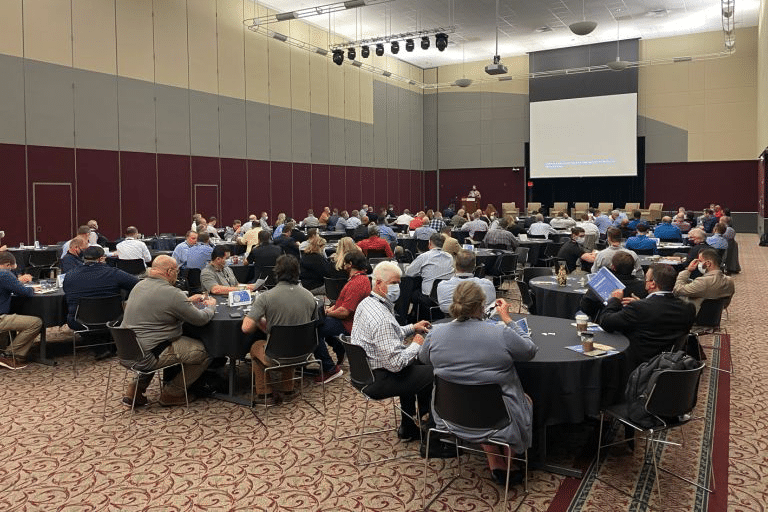About Jacobs Engineering Safety Symposium:
With the construction market in North Carolina booming, contractors of all sizes are facing shortages of skilled tradespeople and seasoned frontline leaders. Speakers from OSHA and the Construction Industry Roundtable shared forecasts for the future workload and changing workforce. Representatives of the North Carolina Community College System, Board of Certified Safety Professionals and North Carolina Alliance for Military Employment described their efforts to recruit and upskill tradespeople. In a series of mini workshops, participants discussed best practices.
Four key takeaways
- Companies that can recruit and retain skilled people will thrive in the years to come. This puts a premium on skilled leadership and high-performance culture. Managers of firms large and small would be well-served to ask themselves, “If team members can make an extra $2 per hour by going to work for our competitors, what will have them want to stay and work for our organization?” A sincere commitment to worker safety and well-being will be mandatory.
- Military veterans are a vital and underutilized resource. Thousands of individuals leave military service each year in North Carolina. They may have higher salary demands and require trade-specific training, but they come with years of knowledge and experience working in teams and following technical processes in demanding environments. Construction managers that can attract this labor source will have a competitive advantage.
- Construction workers suffer addiction, depression, and suicide at a much higher rate than their counterparts in other fields. Finding ways to make it easier to be open and talk about these challenges and ask for help is the right thing and smart thing, to do.
- Vaccine mandates are a clear and present challenge to leadership, culture and teamwork. The proposed 100-person threshold beyond which companies will be mandated to ensure workers are either vaccinated or tested regularly is causing some companies to reduce the number of employees. Others are refusing to bid on jobs that require their people to be vaccinated. This is due in part to owners’ principles in terms of respecting people’s right to choose, but more often it’s a pragmatic reality. A large minority of construction tradespeople are willing to walk away from well-paying jobs rather than get the jab.
If you would like to talk about practical solutions to any of the challenges discussed in this article, please get in touch.


